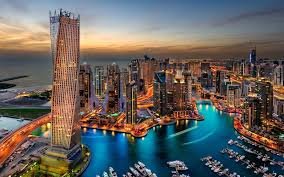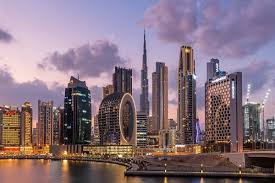Now Reading: New UAE Laws Make Construction Sites Safer Than Ever Before 2025
-
01
New UAE Laws Make Construction Sites Safer Than Ever Before 2025
New UAE Laws Make Construction Sites Safer Than Ever Before 2025

Construction in the UAE is booming, with skyscrapers rising in Dubai, Abu Dhabi, and beyond. But with the rapid growth comes an equally important concern — safety. In recent years, the United Arab Emirates (UAE) has strengthened its construction site safety laws to protect workers, residents, and investors.
These laws are not just formalities. They are designed to reduce workplace accidents, ensure employee wellbeing, and build international confidence in the UAE’s construction standards. In this article, we explain the key safety laws, what they mean for businesses and workers, and how the UAE is leading in construction safety in the Middle East.
Why Construction Site Safety Matters in the UAE

The UAE has one of the world’s most ambitious construction sectors. From high-rise towers to world-class hotels and infrastructure projects, thousands of workers are involved every day in building the future of the country.
Unfortunately, construction is a high-risk industry. According to global statistics, one in five workplace deaths occurs on construction sites. Hazards include falling from heights, exposure to chemicals, poor equipment, and lack of protective gear.
The UAE government, in partnership with labor and health ministries, has introduced strict regulations to reduce such risks and create a safe working environment. These laws apply to employers, site managers, and contractors, and cover every stage of a construction project.
Key UAE Laws and Regulations on Construction Site Safety

The following are the most important construction site safety regulations currently enforced in the UAE:
1. UAE Labor Law – Federal Decree-Law No. 33 of 2021
This is the main labor law that governs employment in the UAE. It includes several clauses aimed at ensuring safe working conditions, especially for high-risk sectors like construction.
Key provisions include:
- Employers must provide all necessary protective equipment to workers.
- Workers must be trained on how to safely use machinery and tools.
- Emergency first aid, fire safety, and evacuation plans must be in place.
- Workplaces must be regularly inspected for compliance with safety standards.
Non-compliance can result in heavy fines, work stoppages, and license suspensions.
2. Ministerial Resolution No. 44 of 2022 on Occupational Health and Safety
This resolution gives detailed guidelines on workplace safety in hazardous sectors. It requires:
- Appointing a qualified safety officer at every construction site.
- Creating and maintaining a safety file for every project.
- Conducting regular risk assessments and safety audits.
- Immediate reporting of any injury or incident to authorities.
The Ministry of Human Resources and Emiratisation (MoHRE) regularly inspects construction sites to ensure these rules are being followed.
3. Midday Break Rule (Summer Working Hours)
Every year, from June 15 to September 15, construction workers are banned from working in direct sunlight between 12:30 pm and 3:00 pm. This is known as the Midday Break Rule and is enforced strictly by the MoHRE.
Employers must:
- Provide shaded resting areas.
- Ensure workers have access to drinking water.
- Avoid penalties by planning work schedules accordingly.
Companies that violate this rule face fines of up to AED 50,000 per incident.
4. Dubai Municipality and Abu Dhabi Department of Municipalities Regulations
In addition to federal laws, local authorities in Dubai and Abu Dhabi have their own rules:
- Dubai Municipality mandates the use of smart helmets, safety harnesses, and real-time site monitoring systems.
- Abu Dhabi’s Department of Municipalities has launched a digital safety monitoring platform that tracks violations and accident reports.
What Employers Must Do

Under UAE law, employers are fully responsible for the safety of workers on construction sites. Their obligations include:
- Conducting pre-employment health checks and safety training.
- Keeping equipment in good condition and up to safety standards.
- Displaying warning signs and safety instructions in multiple languages.
- Ensuring workers are covered by occupational health insurance.
Failure to meet these obligations can lead to legal action, including criminal charges in case of serious injury or death.
Smart Technologies Improving Construction Site Safety
The UAE is also leveraging technology to boost safety standards. Some construction companies are adopting:
- AI-powered monitoring systems to detect unsafe behavior in real time.
- Drones to inspect hard-to-reach areas.
- Wearable tech like GPS-tracking vests and smart sensors that monitor worker fatigue or falls.
These innovations are supported by government incentives and are quickly becoming the norm in high-value projects.
Penalties for Non-Compliance
The UAE takes construction site safety very seriously. Violations of safety laws can result in:
- Fines ranging from AED 5,000 to AED 100,000
- Work stoppage orders from authorities
- Blacklisting of companies
- Cancellation of work permits
- Criminal liability in extreme cases
Recent crackdowns have seen several firms fined and projects halted for ignoring safety protocols, especially during the hot summer months.
Final Thoughts: Safety is Everyone’s Responsibility
The UAE’s construction safety laws are designed to protect lives, not just tick boxes. With smart regulations, government oversight, and technological innovations, the UAE is setting a strong example in the region for how to balance growth with worker welfare and public safety.
Whether you are an employer, contractor, or worker, it is essential to stay informed about these laws and follow them closely. Safety is not only a legal obligation — it is a moral duty.
Read More:- Shobha Realty Launches Its Most Luxurious Project Yet—Full Details Inside 2025






















